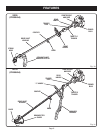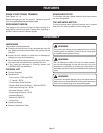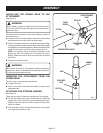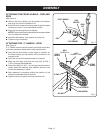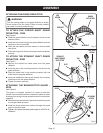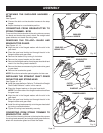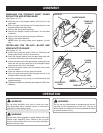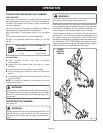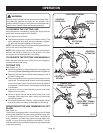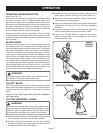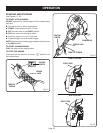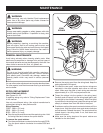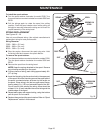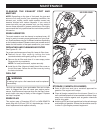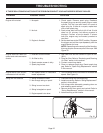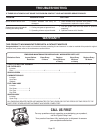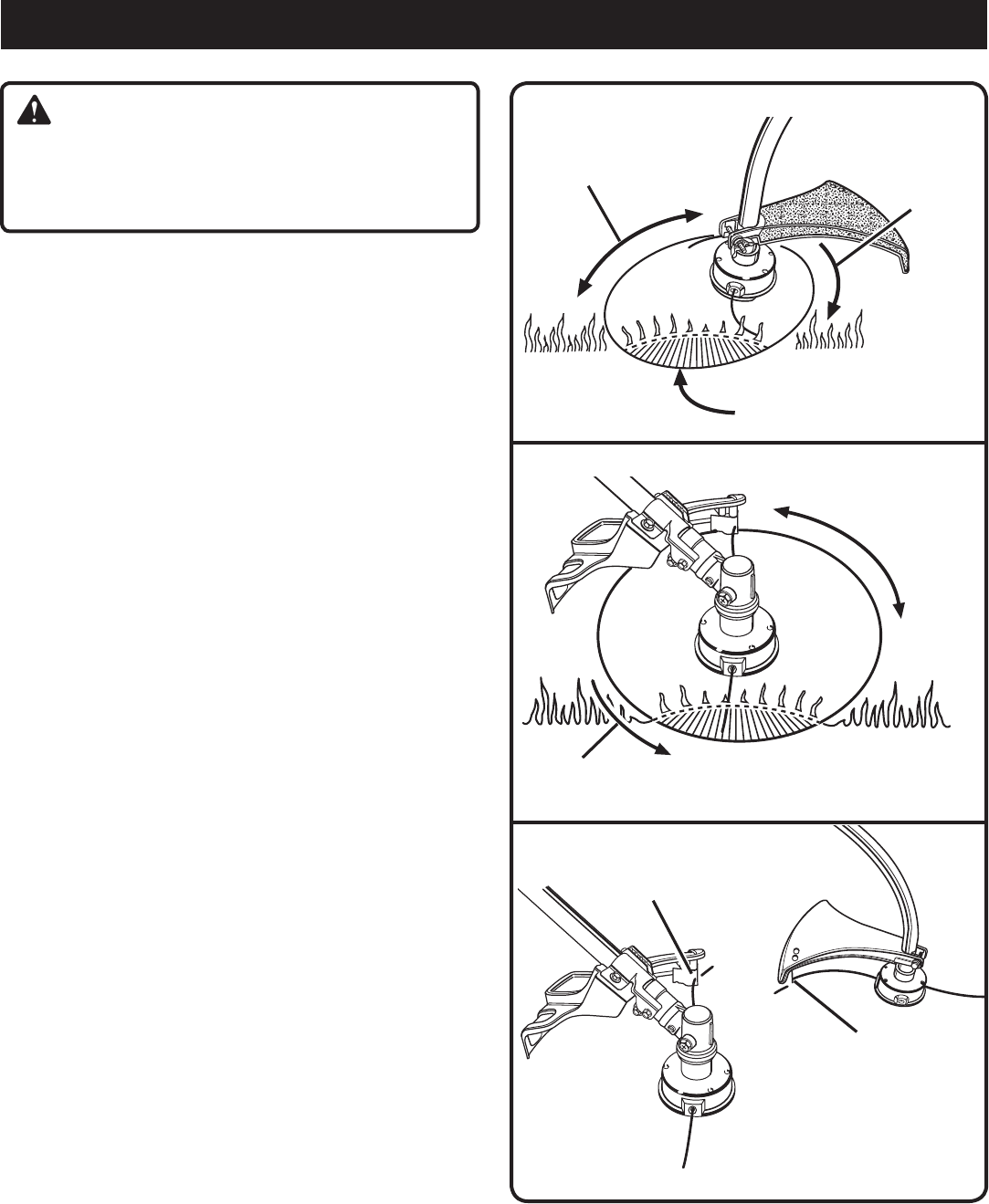
Page 16
WARNING:
Always hold the string trimmer away from the body keep-
ing clearance between the body and the product. Any
contact with the housing or string trimmer cutting head can
result in burns and/or other serious personal injury.
TO ADVANCE THE CUTTING LINE
String advance is controlled by tapping the string head on
grass while running engine at full throttle.
n Run engine at full throttle.
n Tap the spool retainer on ground to advance string. The
string advances each time the spool retainer is tapped.
Do not hold the spool retainer on the ground.
NOTE: The line trimming cut-off blade on the grass deflector
will cut the line to the correct length.
NOTE: If the string is worn too short you may not be able to
advance the string by tapping it on the ground. If so, stop
the engine, and manually advance the string.
TO ADVANCE THE CUTTING LINE MANUALLY
Push the spool retainer down while pulling on string(s) to
manually advance the string.
CUTTING TIPS
See Figures 16 -17.
n Avoid hot surfaces by always keeping the tool away from
your body. (Proper operating position shown in figure 15.)
n Keep the trimmer tilted toward the area being cut; this is
the best cutting area.
n The curved shaft trimmer cuts when passing the unit from
right to left. The straight shaft trimmer cuts when passing
the unit from left to right. This will avoid throwing debris at
the operator. Avoid cutting in the dangerous area shown
in illustration.
n Use the tip of string to do the cutting; do not force string
head into uncut grass.
n Wire and picket fences cause extra string wear, even
breakage. Stone and brick walls, curbs, and wood may
wear string rapidly.
n Avoid trees and shrubs. Tree bark, wood moldings, siding,
and fence posts can easily be damaged by the string.
GRASS DEFLECTOR LINE TRIMMING CUT-OFF
BLADE
See Figure 18.
The trimmer is equipped with a line trimming cut-off blade
on the grass deflector. For best cutting, advance string until
it is trimmed to length by the cut-off blade. Advance the
string whenever you hear the engine running faster than
normal, or when trimming efficiency diminishes. This will
maintain best performance and keep the string long enough
to advance properly.
BEST CUTTING
AREA
DANGEROUS
CUTTING AREA
Fig. 17
DIRECTION OF
ROTATION
DANGEROUS
CUTTING AREA
Fig. 16
BEST CUTTING
AREA
Fig. 18
STRAIGHT SHAFT
TRIMMER LINE TRIMMING
CUT-OFF BLADE
CURVED SHAFT TRIMMER
LINE TRIMMING CUT-OFF
BLADE
DIRECTION OF
ROTATION
STRAIGHT SHAFT TRIMMER
CURVED SHAFT TRIMMER
OPERATION



